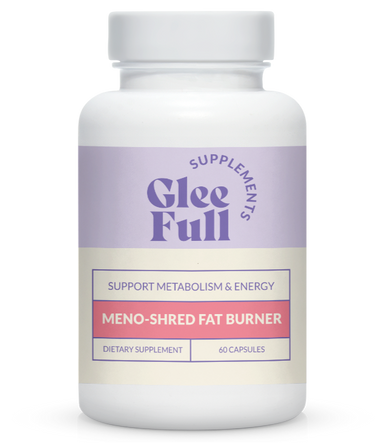Your Cart




Hormonal balance is vital for overall health and well-being, particularly for women navigating through different life stages such as puberty, pregnancy, and menopause. However, various factors can disrupt this delicate balance, leading to hormonal imbalances. In this blog post, we'll delve into the causes of hormonal imbalance, including stress, diet, and lifestyle habits, and explore how they can impact women's health.
Stress is one of the leading contributors to hormonal imbalance in women. When the body experiences stress, it triggers the release of cortisol, the primary stress hormone, which can interfere with the production and regulation of other hormones such as estrogen, progesterone, and thyroid hormones. Chronic stress can lead to imbalances in these hormones, affecting menstrual cycles, fertility, and overall hormonal health.
The foods we eat play a significant role in hormone production and regulation. Diets high in processed foods, refined sugars, and unhealthy fats can disrupt hormonal balance by causing spikes and crashes in blood sugar levels, leading to insulin resistance and imbalances in hormones such as insulin and leptin. Additionally, excessive consumption of caffeine, alcohol, and artificial sweeteners can also disrupt hormone levels and contribute to hormonal imbalances.
Certain lifestyle habits can also impact hormonal balance. Lack of physical activity and sedentary behavior can contribute to weight gain and insulin resistance, leading to hormonal imbalances such as elevated insulin levels and decreased sensitivity to insulin. Poor sleep habits, such as irregular sleep schedules and inadequate sleep duration, can disrupt the body's natural circadian rhythms, affecting hormone production and regulation.
Exposure to environmental toxins and endocrine-disrupting chemicals (EDCs) can also disrupt hormonal balance. These toxins, found in everyday products such as plastics, pesticides, and personal care products, can mimic or interfere with hormone function in the body, leading to hormonal imbalances and adverse health effects. Minimizing exposure to these toxins through lifestyle changes and choosing natural, eco-friendly products can help reduce the risk of hormonal disruption.
Menopause is a significant life stage that brings about a multitude of changes, both physical and emotional. Among these changes, fluctuations in hormones like estrogen and progesterone play a crucial role, often leading to various symptoms, including weight gain. In this blog post, we'll delve deeper into understanding how these hormonal shifts during menopause can influence changes in body weight and shape.
Estrogen and progesterone are two key hormones that regulate various functions within the female body. During menopause, these hormone levels start to decline, leading to significant changes in the body's physiology. Estrogen, in particular, plays a vital role in maintaining metabolic rate and fat distribution, while progesterone helps regulate water retention and bloating.
One of the primary ways in which hormonal changes during menopause contribute to weight gain is through their effect on metabolism. As estrogen levels decline, the body's metabolic rate tends to slow down. This decrease in metabolism makes it easier to gain weight, especially around the abdomen, hips, and thighs.
Another factor that influences weight gain during menopause is the redistribution of body fat. Estrogen helps regulate where fat is stored in the body, favoring subcutaneous fat (fat stored under the skin) over visceral fat (fat stored around the organs). However, as estrogen levels decline, there is a shift towards storing more visceral fat, which is associated with an increased risk of chronic diseases like heart disease and diabetes.
Hormonal changes during menopause can also affect appetite regulation and food cravings. Fluctuations in estrogen and progesterone levels may lead to increased feelings of hunger and cravings for high-calorie foods, particularly those high in sugar and fat. These changes in eating habits can further contribute to weight gain over time.
While hormonal changes during menopause can make weight management more challenging, there are several strategies that women can adopt to help mitigate these effects:
Understanding how fluctuations in estrogen and progesterone during menopause can contribute to weight gain is essential for women navigating this life stage. By being aware of these hormonal changes and implementing strategies to support overall health and well-being, women can effectively manage their weight and embrace this new chapter of life with confidence and vitality.
Menopause marks a significant transition in a woman's life, accompanied by a myriad of physical and emotional changes. Amidst these changes, hormonal balance emerges as a key player in the management of menopausal symptoms. In this blog post, we'll delve into the vital role that hormonal balance plays in navigating the challenges of menopause and discuss strategies for achieving and maintaining it.
Menopause is characterized by a decline in the production of key hormones such as estrogen and progesterone. These hormonal fluctuations can trigger a range of symptoms, including hot flashes, night sweats, mood swings, vaginal dryness, and sleep disturbances. Achieving hormonal balance is essential for alleviating these symptoms and promoting overall well-being during this transitional phase.
Hormonal imbalance during menopause can exacerbate the intensity and frequency of various symptoms. For example, declining estrogen levels can lead to hot flashes and vaginal dryness, while fluctuations in progesterone can contribute to mood swings and sleep disturbances. Achieving hormonal balance is crucial for minimizing the severity of these symptoms and enhancing quality of life.
Maintaining hormonal balance is essential for effectively managing menopausal symptoms and promoting overall health and well-being. By restoring equilibrium to estrogen, progesterone, and other hormones, women can experience relief from symptoms such as hot flashes, mood swings, and sleep disturbances. Hormonal balance also plays a crucial role in supporting bone health, heart health, and cognitive function during menopause.
Fortunately, there are several strategies that women can adopt to promote hormonal balance and alleviate menopausal symptoms:
Hormone Replacement Therapy (HRT): HRT involves supplementing estrogen, progesterone, or a combination of both to restore hormonal balance and alleviate menopausal symptoms. It's essential to discuss the risks and benefits of HRT with a healthcare provider to determine if it's the right option for you.
Lifestyle Modifications: Making lifestyle changes such as maintaining a healthy diet, engaging in regular exercise, managing stress, and getting adequate sleep can help support hormonal balance and alleviate menopausal symptoms.
Natural Remedies: Some women find relief from menopausal symptoms through natural remedies such as herbal supplements, acupuncture, yoga, and meditation. These approaches can help promote hormonal balance and enhance overall well-being without the use of pharmaceuticals.
Bioidentical Hormone Therapy: Bioidentical hormones are derived from plant sources and are chemically identical to the hormones produced by the body. Bioidentical hormone therapy may offer an alternative to traditional HRT for some women seeking relief from menopausal symptoms.
By understanding the role of hormonal balance in symptom management and implementing strategies to achieve it, women can navigate the challenges of menopause with confidence and grace. Whether through hormone replacement therapy, lifestyle modifications, natural remedies, or bioidentical hormone therapy, there are options available to support hormonal balance and enhance quality of life during this transformative phase of life.
As women transition through menopause, sleep disturbances can become a common and frustrating occurrence. Hormonal changes, coupled with other factors, can disrupt sleep patterns and lead to various sleep disorders. In this blog post, we'll delve into identifying common sleep disorders that may affect women during menopause and provide practical tips for improving sleep hygiene to promote restful nights.
Common Sleep Disorders
Insomnia is characterized by difficulty falling asleep, staying asleep, or waking up too early and being unable to fall back asleep. Hormonal fluctuations, hot flashes, night sweats, and anxiety are common contributors to insomnia during menopause.
Sleep apnea is a condition where breathing repeatedly stops and starts during sleep, leading to fragmented sleep and daytime fatigue. While sleep apnea can affect people of all ages and genders, its prevalence tends to increase in women after menopause due to changes in weight distribution and hormonal levels.
Sleep disorders can have a profound impact on the physical and emotional well-being of menopausal women. Chronic sleep deprivation can exacerbate menopausal symptoms such as hot flashes, mood swings, and irritability. Additionally, inadequate sleep can increase the risk of developing chronic health conditions such as obesity, diabetes, and cardiovascular disease.
Create a relaxing bedtime routine that signals to your body that it's time to wind down. This may include activities such as reading, taking a warm bath, or practicing relaxation techniques like deep breathing or meditation.
Make your bedroom conducive to sleep by keeping it cool, dark, and quiet. Invest in comfortable bedding and pillows, and consider using white noise machines or earplugs to block out external disturbances.
Avoid using electronic devices such as smartphones, tablets, and computers at least an hour before bedtime, as the blue light emitted from screens can disrupt melatonin production and interfere with sleep.
Avoid heavy meals, caffeine, and alcohol close to bedtime, as they can interfere with sleep quality. Instead, opt for light, easily digestible snacks if you're hungry before bed, and limit fluid intake to prevent frequent trips to the bathroom during the night.
Practice stress-reducing techniques such as mindfulness, yoga, or journaling to help quiet the mind and promote relaxation before bedtime. Consider seeking professional help if stress and anxiety are significantly impacting your sleep.
Sleep disorders are a common challenge for menopausal women, but with the right strategies and lifestyle modifications, restful nights are within reach.
Identifying common sleep disorders such as insomnia and sleep apnea and implementing practical sleep hygiene tips, women can improve the quality of their sleep and enhance their overall health and well-being during this transformative phase of life.
As estrogen and progesterone levels fluctuate, many women experience mood swings, irritability, and emotional instability. In this blog post, we'll explore how hormonal fluctuations during menopause can influence mood and emotional well-being, and provide tips for managing these changes with grace and resilience.
Hormones play a crucial role in regulating mood and emotional stability. Estrogen and progesterone, in particular, have been linked to neurotransmitter activity in the brain, including serotonin, dopamine, and norepinephrine, which are involved in mood regulation. During menopause, declining levels of estrogen and progesterone can disrupt the delicate balance of these neurotransmitters, leading to mood swings, irritability, and emotional ups and downs.
Mood swings during menopause can vary in intensity and duration, ranging from mild irritability to severe mood disturbances. These fluctuations can affect all aspects of a woman's life, including relationships, work, and overall quality of life. Common symptoms of mood swings during menopause may include:
Managing Mood Swings: Tips for Emotional Well-being:
While mood swings during menopause can be challenging, there are steps women can take to manage their emotional well-being and navigate this transitional phase with resilience:
Practice Self-care: Prioritize self-care activities that promote relaxation and stress reduction, such as meditation, yoga, deep breathing exercises, or spending time in nature.
Maintain a Balanced Lifestyle: Eat a healthy diet, engage in regular physical activity, and prioritize adequate sleep to support overall well-being and mood stability.
Seek Support: Reach out to friends, family members, or support groups for emotional support and encouragement during this time of transition.
Consider Therapy: Counseling or therapy can provide valuable support and coping strategies for managing mood swings and emotional challenges during menopause.
Explore Hormone Therapy Options: Hormone replacement therapy (HRT) may be an option for some women experiencing severe mood swings and emotional symptoms during menopause. It's essential to discuss the risks and benefits of HRT with a healthcare provider to determine if it's the right choice for you.
Mood swings during menopause are a common and often challenging symptom of hormonal fluctuations.
Engaging in regular physical activity is essential for maintaining cardiovascular health during menopause. Aim for at least 150 minutes of moderate-intensity aerobic exercise or 75 minutes of vigorous-intensity exercise each week, along with muscle-strengthening activities on two or more days per week.

Menopause is associated with changes in hormone levels, including a decline in estrogen, which plays a protective role in cardiovascular health. As estrogen levels decrease, women become more susceptible to risk factors for heart disease, such as high blood pressure, high cholesterol, and weight gain. Additionally, menopause can exacerbate existing risk factors such as obesity, diabetes, and sedentary lifestyle habits, further increasing the risk of heart disease.
Limiting sodium intake can help manage blood pressure and reduce the risk of heart disease. Choose fresh, whole foods over processed and packaged foods, and use herbs, spices, and citrus juices to add flavor to meals without relying on salt. Pay attention to portion sizes to avoid overeating and support weight management. Use smaller plates, measure serving sizes, and practice mindful eating to tune in to hunger and fullness cues.
Minimize consumption of sugary beverages, sweets, and refined carbohydrates, which can contribute to weight gain, insulin resistance, and inflammation, all of which are risk factors for heart disease.
Stay Hydrated: Drink plenty of water throughout the day to stay hydrated and support overall health and well-being.
Adopting a diet rich in fruits, vegetables, whole grains, lean proteins, and healthy fats can support heart health during menopause. Focus on foods that are low in saturated and trans fats, sodium, and added sugars, and incorporate heart-healthy fats such as omega-3 fatty acids found in fatty fish, nuts, and seeds. Try Meno Belly Night Burn.
Our unique formula works to suppress insulin resistance and balance estrogen levels, targeting stubborn belly fat for a slimmer, trimmer you! Bid farewell to shallow sleep with Meno Belly Night Burn! Experience rejuvenating nights and wake up feeling refreshed, energized, and ready to conquer the day.
With Meno Belly Night Burn, maintaining a high metabolism is effortless. Burn calories efficiently, even while you sleep, and witness noticeable results in just days! Don't settle for feeling sluggish and weighed down. Transform your body and energize your life with Meno Belly Night Burn. Try it today and feel the difference!